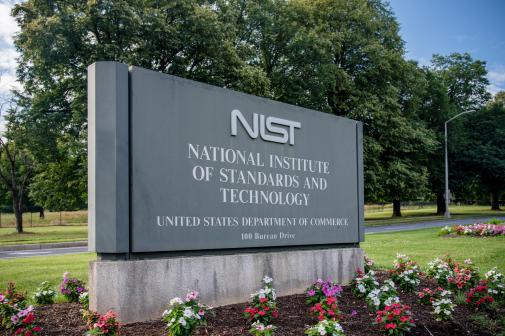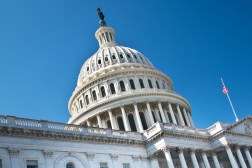President’s science and tech advisors recommend launch of $500M fund for semiconductor startups

The President’s Council of Advisors on Science and Technology recommended the National Semiconductor Technology Center create a $500 million investment fund for startups by the end of 2023, in a report released Tuesday.
A fund would let the National Semiconductor Technology Center directly invest in early-stage semiconductor companies and incubators offering expertise and support, as well as provide reduced or zero-cost, in-kind access to prototyping facilities and tools.
NSTC is part of the Commerce Department that was established through the CHIPS Act. Under that legislation it was tasked with launching a public-private consortium for research and prototyping of advanced technology.
PCAST floated the idea of an investment fund in an August letter to President Biden — ahead of him signing the CHIPS and Science Act with $11 billion for semiconductor research and development (R&D) — to offset the high cost of entry for startups and encourage more to enter the space.
“I am excited that PCAST is issuing this report to help ensure that the efforts funded by the CHIPS and Science Act accelerate strengthening the semiconductor workforce and drive innovation through R&D,” said co-chair Maria Zuber in a statement. “Our recommendations can help make this happen, not just for a few years, but for decades to come.”
Investments will have the highest impact if they target companies during the riskiest pre-seed and seed rounds, according to the report.
A second, near-term recommendation PCAST made aimed at startups is for the NSTC to create a “chiplet” platform with a complete software stack by the end of 2025. The platform would consist of common, non-innovative parts that startups and researchers could rapidly innovate on at reduced development costs.
Longer term PCAST recommended the Department of Commerce secretary ensure 30% to 50% of NSTC funding goes toward a broad national research agenda covering:
- materials, process and manufacturing technologies;
- packaging and interconnect technologies;
- energy-efficient computing and domain-specific accelerators;
- design automation tools and methods;
- semiconductor and system security; and
- semiconductors and life sciences.
Nationwide challenges the agenda should address include achieving zettascale computing, reducing semiconductor design complexity and life sciences applications.
“Investing in research and development is crucial to strengthening long-term U.S. semiconductor competitiveness,” said Lisa Su, PCAST member, in a statement. “The $11 billion from the CHIPS and Science Act dedicated to R&D is a once-in-a-generation opportunity to fill the pipeline with new breakthroughs in semiconductor innovation and train the next generation of semiconductor innovators.”






